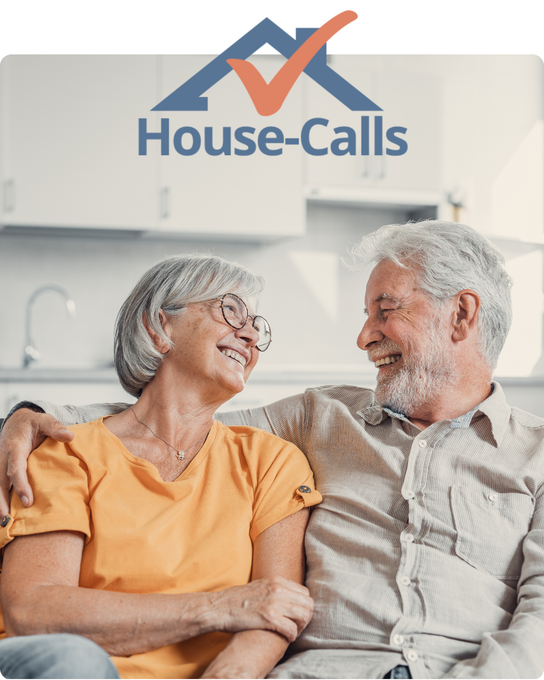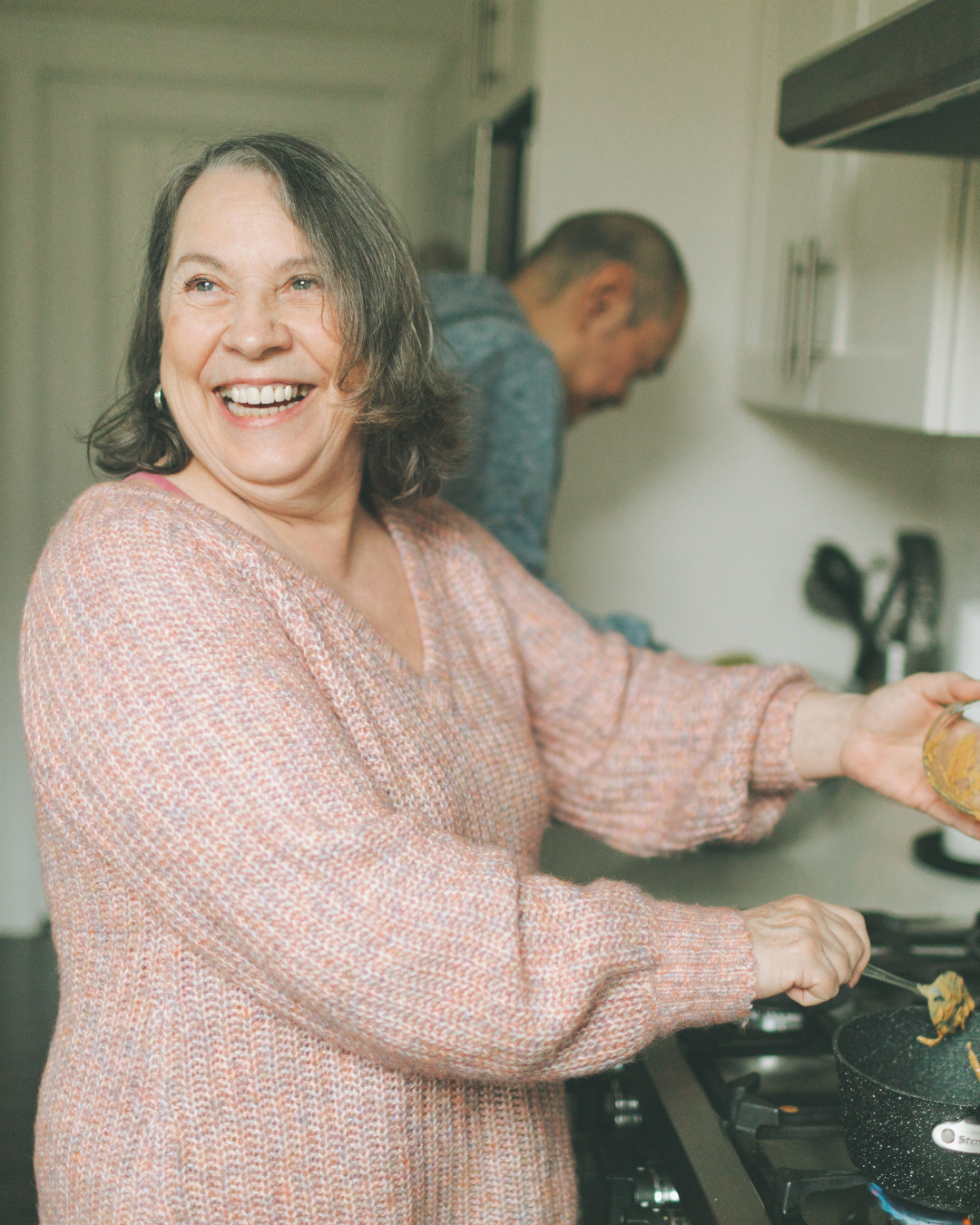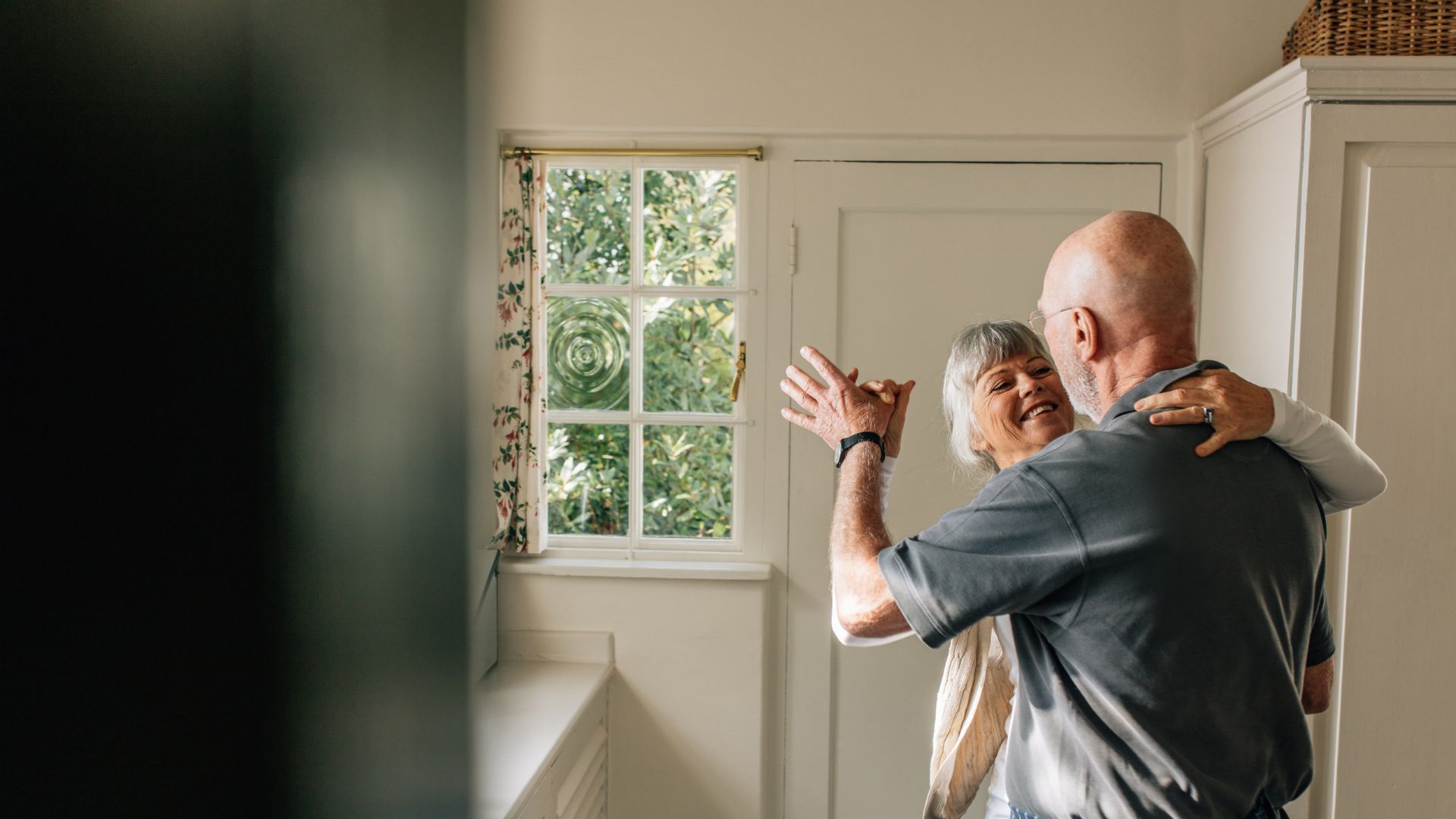You deserve to feel secure at home — and your family deserves to know you're safe.
That’s the peace of mind we offer.
How We Help:
Fall
Prevention
Identify hazards in high-risk areas like bathrooms and stairs.
Improve
Accessibility
Make your home easier to move through and safer to live in.
Smart,
Affordable Solutions
Practical tips you can act on today.
Trusted
Professionals
In-home assessments by experienced, friendly experts.
Let’s face it — we’re all aging.
The only question is: do you want to plan ahead or wait until it’s an emergency?
City skyline
How It Works
1. Book a Visit
We start by scheduling a time that works for you.
2. Full home walk-through — Inside and Out
Together, we walk through your home, room by room, and even outside your entryways. We assess how well your space supports mobility, vision, hearing, memory, and daily routines. From slippery stairs and poor lighting to tight hallways and trip hazards, we’re looking for anything that could cause problems — now or down the road.
3. Get a Custom Safety Report
After the walkthrough, you’ll receive a personalized report with clear, actionable recommendations prioritized by safety, cost, and urgency. Whether it's a small fix or a renovation, we focus on realistic solutions that fit your goals and your budget. As well as offering products and technologies that can help create a safe and functional space.
4. Feel Confident in Your Home Again
With your custom plan in hand, you can make informed decisions — on your timeline. Whether you handle changes yourself, hire one of our CAPS certified contractors, or want ongoing guidance, we’re here to support your journey to safer, more independent living.
Who It’s For
Is House Calls Right for You?
If you want to live safely, comfortably, and independently in your own home — or support someone who does
—
House-Calls was made for you.
Our home safety assessments are tailored to meet you exactly where you are, whether you're planning ahead or navigating a recent life change.
Seniors Planning to Age in Place
You’ve built a life in your home — and you want to stay there. We help you prepare for the years ahead by making sure your space supports your evolving needs. With thoughtful recommendations and a customized plan, you can maintain your independence and peace of mind.
Adult Children Supporting Aging Parents
Watching your parents grow older can be emotional and uncertain. House Calls offers a proactive way to keep your loved ones safe — while reaffirming their independence. Our evaluations provide the clarity, next steps, and peace of mind you need to support them with confidence and care.
Surgical Recovery or Facing Mobility Changes
Whether it’s a temporary recovery or a new diagnosis, life changes fast. We assess your home to reduce fall risks, improve access, and support healing. From front steps to the shower, we’ll help you adapt your space to support safe movement and everyday comfort.
Healthcare Professionals and Care Teams
Are you a doctor, OT, PT, or caregiver working with older adults? Our services provide a trusted resource you can refer to clients or families who need practical, expert support with home safety and long-term planning. We help turn your recommendations into real-world action.
Wondering if it’s time to assess your home?
Our free questionnaire can help you decide.
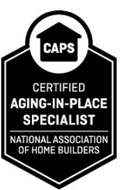
Who Is
House-Calls?
Experienced. Certified. Heart-led.
At House Calls, we’re more than just home safety professionals — we’re advocates for aging with dignity.
We are CAPS-certified (Certified Aging-in-Place Specialists), trained to assess homes through the lens of safety, accessibility, and long-term independence. But our work goes beyond checklists and codes.
House Calls was born from something deeply personal: a love for the older adults in our own lives. We’ve seen firsthand how overwhelming it can be to navigate aging at home without the right support. That’s why we created a service built on trust, compassion, and a commitment to doing what’s right — every time.
We’re here to make aging in place safer, easier, and more empowering — for you, and the people who love you.
Free Download:
Family Home Safety Checklist (For When Grandma Comes To Visit)
Simple Improvements You Can Make at Home to Welcome Aging Loved Ones
This free, easy-to-follow checklist is designed for families who want to make their own home safer and more welcoming for aging loved ones. Whether it’s a weekend visit or an extended stay, these simple changes can help prevent falls, improve comfort, and bring peace of mind to everyone.
Help keep your aging loved ones safe —
starting with simple changes at home.
Download our FREE checklist
Frequently Asked Questions
Answers to the most common questions about House-Calls
Still Have Questions?
Contact us and our team will be
happy to help.
How does a home safety assessment differ from a home inspection?
A home safety assessment focuses on how well your home supports your safety, independence, and comfort as you age — not just today, but in the years to come. It’s designed to help you stay in your home longer by identifying risks and recommending proactive changes and renovations that make daily living easier and safer.
In contrast, a home inspection is typically done during a real estate transaction and focuses on the condition of systems like roofing, plumbing, and electrical — it’s about the house itself, not the people living in it.
At House Calls, our certified team looks for things that matter most to aging adults, including:
- Fall hazards and slippery surfaces
- Bathroom safety (grab bars, shower access, non-slip flooring)
- Poor lighting or difficult-to-reach switches
- Narrow hallways and doorways
- Hard-to-use knobs, handles, or stairs
- Vision and hearing-friendly upgrades
- Outdoor accessibility (walkways, ramps, entrances)
- Renovation opportunities to make your home safer and more comfortable over time
We take a proactive approach, helping you make smart, affordable improvements now — before there's a crisis. Whether it’s a simple fix or a recommended renovation, your personalized safety report gives you clear, prioritized next steps.
What is a home safety assessment
A home safety assessment is a professional walkthrough of your home — inside and out — to identify potential risks like fall hazards, poor lighting, or accessibility issues.
After the visit, you’ll receive a custom report with prioritized, practical recommendations to make your home safer and more supportive.
Who needs a home safety evaluation?
Anyone who plans to age in place can benefit — especially seniors, people with mobility or health changes, or adult children helping their parents prepare for the future. Even if everything seems fine, small improvements now can prevent major problems later.
What does it cost?
We offer different pricing options depending on the size of your home and your needs.
Basic assessments are affordable and designed to save you money (and stress) in the long run. We’ll provide a clear quote up front — no surprises. You can expect anywhere from $400 - $1000 investment.
Do you make the recommended changes for us?
Yes! At House-Calls, we don’t just identify the problems — we also offer solutions.
After your home safety evaluation, we can take care of the recommended modifications ourselves. From simple upgrades like installing grab bars or replacing door handles, to more involved projects like bathroom or entryway renovations, our team is trained and equipped to help you make the changes that matter.
Prefer to work with your own contractor or family? No problem — your customized safety report includes everything you need to guide the process.
How long does the visit take?
Most evaluations take between 1 - 3 hours depending on the size and layout of your home. We take the time to answer your questions and explain our findings so you feel fully informed.
What qualifications do you have?
We are Certified Aging-in-Place Specialists (CAPS) — trained in home modification strategies that support aging adults. Our work is also shaped by personal experience caring for loved ones, which is why we bring both expertise and heart to every visit.


